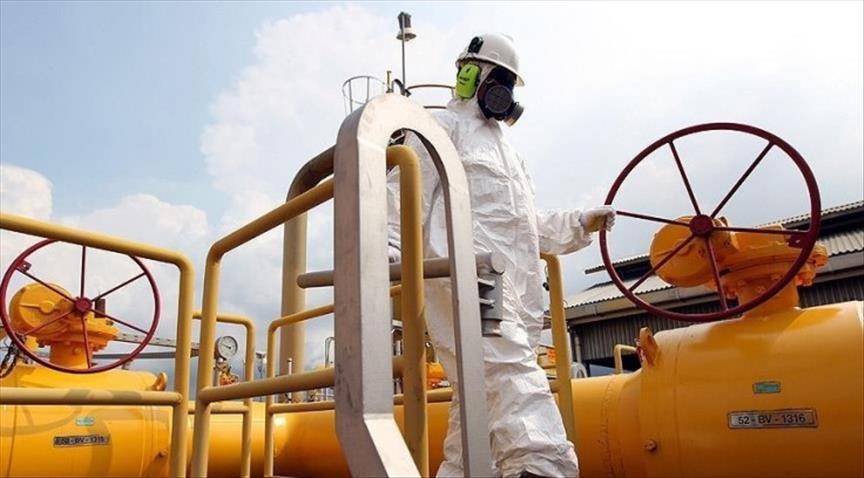Russia will incur an expensive bill in keeping out U.S. LNG out of Europe where Russia is the dominant supplier, an Atlantic Council expert said Thursday.
This week saw the first shipment of U.S. domestically produced liquefied natural gas (LNG) to Europe, although the amount was only a small fraction of what Russia sells to Europe every year.
'It would cost Gazprom a lot of money to keep out the U.S. LNG,' Bud Coote, resident senior fellow at the Global Energy Center of Atlantic Council said at the 'U.S. LNG Exports and European Energy Security Conference' in Washington D.C.
The LNG shipment is the U.S.' first step in entering the European gas market.
'I'd say in the next two years there's not going to be a whole lot of U.S. LNG to compete with Russian gas,' Coote said, but added that it will affect the price of Russian gas in Europe.
'In Europe, you don't get the lowest price for Russian pipeline gas ... It will cost [Russian gas company] Gazprom a lot of money to have a large amount of its gas [in Europe], while keeping out a relatively small amount of the U.S. LNG,' he explained.
Coote noted that it will be interesting to see how Gazprom will react to the increasing availability of U.S. LNG in Europe, and whether it will try to outcompete the U.S. in the European market by lowering its gas pipeline prices.
Andrew Walker, vice president of strategy at Cheniere Energy, the American company that exported the U.S.' first LNG to Europe, said the U.S. will be a 'price setter' for the future in the global gas market.
Walker emphasized the cost-competitiveness in the supplies of U.S. natural gas, and said 'low-cost gas and low-cost infrastructure is a hard combination to beat' -- a statement which could inflame Russia's Gazprom which sells gas to Europe at a higher price.
'The U.S. has an abundance of supply, and a lot of cheap gas with its shale revolution. And you can build LNG export infrastructure in the U.S. cheaper than anywhere else. It has cost three times more in Australia,' he added.
'That will be a real change in the LNG industry. We are heading towards a more commoditized nature in global gas markets,' he said.
He emphasized that the U.S. is making LNG attractive to customers again, in the face of low gas prices around the world, through its competitiveness in offering natural gas with cheaper prices.
By Ovunc Kutlu in New York
Anadolu Agency
ovunc.kutlu@aa.com.tr


